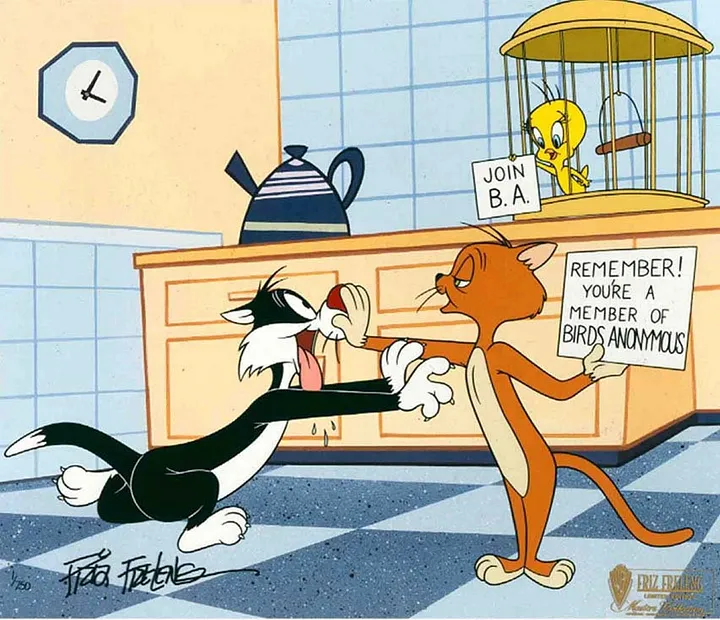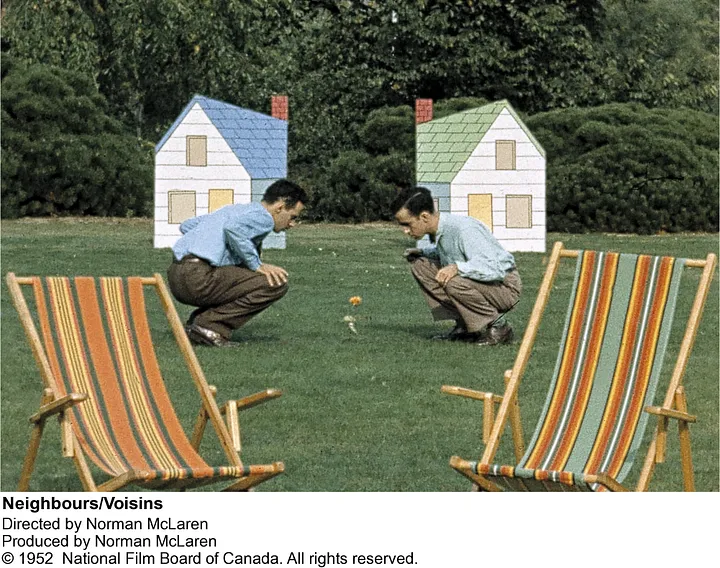Submissions are open for the 6th annual Canadian Short Screenplay Competition now until April 13th, 2025 via FilmFreeway.
Submit your script today and prepare to take your place on the global stage!
2025 > Why We Still Write…
By Neil Graham
5 Feb 2025

We have a remarkable level of access to movies today. It’s a far cry from when I began my love for all things film in the 70s & 80s when viewing was restricted to my local cinema screen and the schedule of the BBC. Over the last forty years the technological progress that has given rise to home cinema has given us so much choice— access to the full weight of film history at the touch of a button or two. In most ways this is absolutely wonderful! An ability to watch the collected works of Scorsese or Truffaut on demand is worth a celebration.
But the challenge this creates for film lovers is how to find the time to watch all the movies that we want to see— a first world problem, no doubt— but a dilemma nonetheless! The modern age: are we not entertained?
Given our ability to watch the best of the best that cinema has to offer, what really is the point of staying abreast with contemporary movies? Why write and film more stuff? I could simply fill my limited free time with Hitchcock, Hawks, Lean, etc. rather than take pot luck with something new, untried, untested.
This is a thought that pops into my head from time to time; to make a movie is often hard (it can be a lot of fun, but it is always a challenge)! Is it really worth that colossal effort?
This is a straw-man argument, of course. One intended to be knocked down in the next paragraph— but it is still an interesting question. What differentiates your script from all those that have gone before? What exactly do you have to say? It seems we are not too far away from a perfectly serviceable screenplay for the latest blockbuster being written by an AI software package. Mainstream screen entertainment will become more computerised, not less.
What will be much harder to replicate will of course, be the Personal— a word deliberately written with a capital P.
The reason why we simply don’t just watch the great movies of the past on constant repeat, and why we want writers and directors to explore the new is that there are novel experiences out there every day, every moment— we want, no we need people, to tell us about their own experience of living in the 21st Century. It is important. Very important.
The communication of human existence is where great stories live. And with computers set to, if not quite take over, at least get a big promotion and pay rise, this simple truism feels more relevant than ever. The best scripts convey the thoughts and experiences, directly or indirectly, of what it is to participate in Life or life— both the big stuff and the small stuff, and everything in between. Dispensing your knowledge of your life into the world through film will always be worthwhile.
Only You can really tell us what it is like to be you— what makes you happy, sad, angry, frustrated, entertained… what makes you laugh or cry… that really is worth recording and sharing with the world— whether you are an established writer, or just starting out… You may or may not have Sorkin’s gift for dialogue or David Koepp’s flare for spectacle. But then neither of these writers intrinsically know what you think and feel about your place in the world. If you can share that, it will almost certainly be something worth reading.
This is certainly the main reason why I write— to try and understand, and communicate what and why I think and feel about things going on around me. This process of writing, this organisation of my own half-baked ideas and emotions is in many ways more important than the finished script. But I am certain that it is the communication of something unique and personal that differentiates the good from the also ran.
My favourite movies certainly make me feel there is another person telling me something about their own experiences of the world. To stick with one of my favourite screenwriters: it is Aaron Sorkin’s frustration that powerful men (it is usually men!) aren’t always able or willing to use their leverage for the greater good that fascinates me— as much as his astonishing gift for verbal dazzle and moral drama. This sense of a writer wrestling to find his own perspective on the world’s elite always filters through.
This applies to short movies too. The best of them, those that have stuck in my brain anyway, communicate something personal. (My script) Something Pointless was not written with any real endgame in mind— it was simply an exploration and expression of my own feelings about the increasingly transactional nature of the world. That was it, the catalyst, and so here we are today…
There won’t be too much advice offered in this column over the next few months! I am as much a believer of breaking rules as following them. And one of the advantages of shorts, is there are less established conventions to follow than in the realm of feature films. So creatively, go to town! But here are a couple of my own beliefs.
Short. Is. Better.
This is the mantra of this contest. This is a pearl of wisdom. Get your thoughts over as quickly as possible. Feature films may be getting baggier and longer, but the best shorts condense their ideas super efficiently. I grew up watching the classic short cartoons— Mickey Mouse, Merry Melodies and Looney Tunes: they were a staple of Saturday morning television and would be shown at school on rainy days. Happy times! The best of them are fabulous. Check out the Oscar winning Birds Anonymous— and see how much is shared about addiction struggles in 6 minutes— there is real human emotion embedded in Sylvester and Tweety. It is also chock full of great gags!
But for me the most important aspect is to try and write something personal— try to make sure a sense of you, your opinions, your feelings seep into the page. You can set your film in the past, in space, in an entirely fantastical world if you wish. But focus on sharing a perspective on the world that is true to you. Write something an AI package would struggle to copy! And who knows, we may end up watching your short film one day. But if not, the experience of writing will be interesting and useful anyway.

At the end of each blog, I will give you an example of some of my favourite shorts. I thought it was appropriate to pick one from Canada: Norman McLaren’s Oscar-winning Neighbours (https://www.youtube.com/watch?v=e_aSowDUUaY). Admire the artistry, patience and laugh at the escalating conflict— but also have the awareness that it conveys a tragic sense of absurdity at humanity’s ability to wage war when peaceful solutions are at hand. That feeling could only have started with the author: a personal perspective shines through.
Happy Writers Wednesday. Get writing! #WW
Submissions are open for the 6th annual Canadian Short Screenplay Competition now until April 13th, 2025 via FilmFreeway.
Submit your script today and prepare to take your place on the global stage!

2025 #WW Laureate